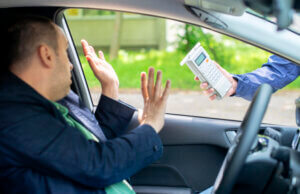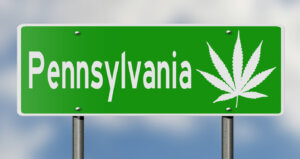What Happens to Your License if you Refuse to Take a Breath or Blood Test in PA?
It may go without saying that many people who are charged with DUI are not thinking clearly when they are pulled over by the police. This sometimes results in a refusal to take a breathalyzer or a blood test after the DUI arrest, which can further complicate life down the road. The biggest complication for many is the loss of a driver’s license.
Refusing a breathalyzer or chemical blood test after a DUI arrest is not the same as refusing a portable breath test that police may carry in their car and ask you to take BEFORE your arrest. These tests are often to determine if you have alcohol on your breath and are not accurate or admissible in court.
If you refuse a breathalyzer or a blood test after a DUI arrest in PA, your license can be suspended both for the refusal and for the DUI. This means you could face two separate license suspensions: one suspension for the refusal, and the other for the DUI conviction.
Even if you end up getting accepted into the ARD program for your DUI charge, or receive a Not Guilty verdict, you can still face a license suspension for refusing chemical testing after the arrest.
If this has happened to you or your loved one, the first thing you can do is contact a DUI Attorney in Pennsylvania. Ketchel Law offers free consultations for anyone charged with DUI in Pittsburgh and Western Pennsylvania.
Call 412-456-4221 for a free legal consultation about your DUI case.
What is the difference between refusing a breathalyzer and refusing a blood test?
If you refuse a breathalyzer after a DUI arrest, you will be facing a license suspension for the refusal and your DUI will be graded as the highest tier DUI. (Read more about BAC level Tiers)
The reason for the highest tier grading is because a warrant is not necessary for police to test your breath. On the other hand, the police must have a warrant to get a blood sample. If you refuse to give a blood sample and the police do not get a warrant, then your DUI will likely be graded as a lowest tier DUI, general impairment. However, you will still face a license suspension for the refusal.
In either case, a refusal will mean an automatic license suspension from PennDOT. If you refuse, or the police say you refused, you will receive a letter from PennDot stating that your license will be suspended. This is true even if you are never charged criminally for DUI or if you win your DUI case. You will have thirty days from the date of the suspension letter to file an appeal of your suspension.
When you are issued a license by PennDOT, you have already signed an agreement to consent to taking a breath or blood test. By violating that agreement, you face the penalties of a license suspension, as the bare minimum.
Can a DUI Lawyer Help If I Refused a Chemical Test or Breathalyzer?
Yes.
The stakes for a DUI conviction are high if you refused a breathalyzer or chemical test, but an attorney can help you better understand your options. No situation is ever hopeless – there is always a chance you could get the penalties reduced and filing a license suspension appeal may help delay a license suspension.
An Arrest is NOT a Conviction.
It is very helpful to have an experienced PA DUI Lawyer explain the charges, your rights and help walk you through the process. A DUI Lawyer can also help explain when you will be eligible for Ignition Interlock suspension process, so you can begin driving again.
If you were charged with DUI in Western Pennsylvania, call Ketchel Law at 412-456-1221 for a free consultation.
PENNSYLVANIA DUI LAWYERS
KETCHEL LAW
Call 412-456-1221 for a free consultation
If you have been charged with a DUI in Pennsylvania, contact Ketchel Law today.
Our number one goal is to have your charges dismissed and your record clean.
Learn more about DUI Laws in Pennsylvania
- First-time DUI Offense
- Refusing a Breathalyzer
- Second DUI Offense
- DUI Marijuana
- DUI Arrest in PA with a BAC over .16
- The Penalties for a DUI Conviction in PA
- A DUI Arrest and Your License
- DUI Court Process
- The Pennsylvania ARD Program
_____________________
FREE LEGAL CONSULTATION
We offer free legal consultations to anyone charged with a crime in Western Pennsylvania. Call us at 412-456-1221 today to find out how we can help defend your rights.
Learn more about Ketchel Law:
- Pittsburgh Criminal Lawyers
- Pittsburgh Drug Lawyers
- Pittsburgh DUI Lawyers
- Read Client Reviews
- Case Results




